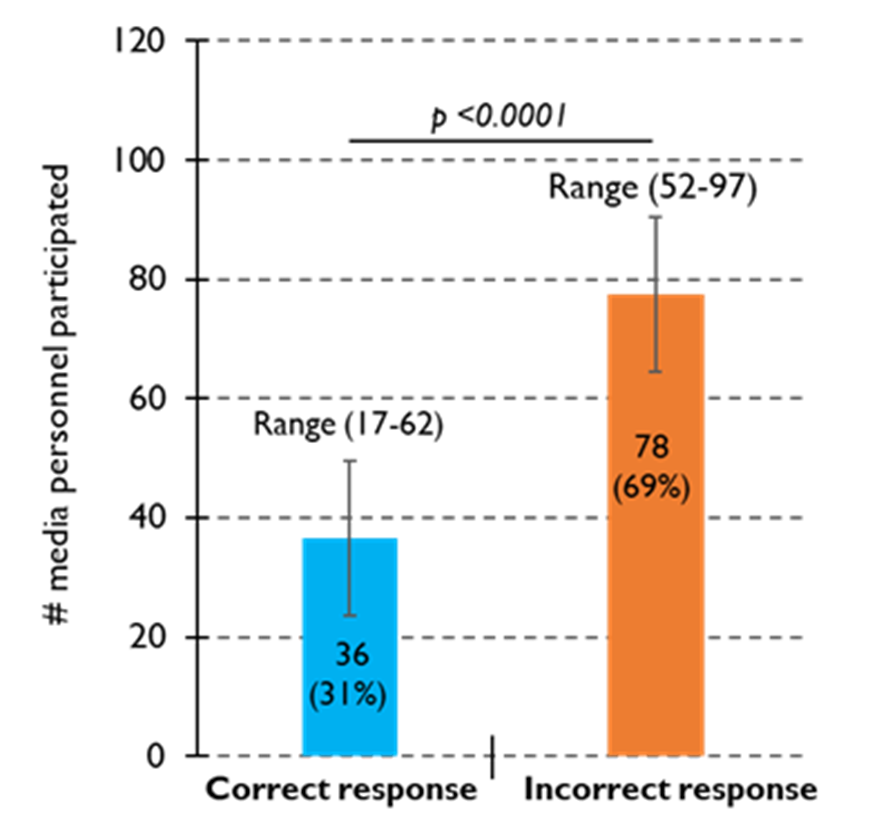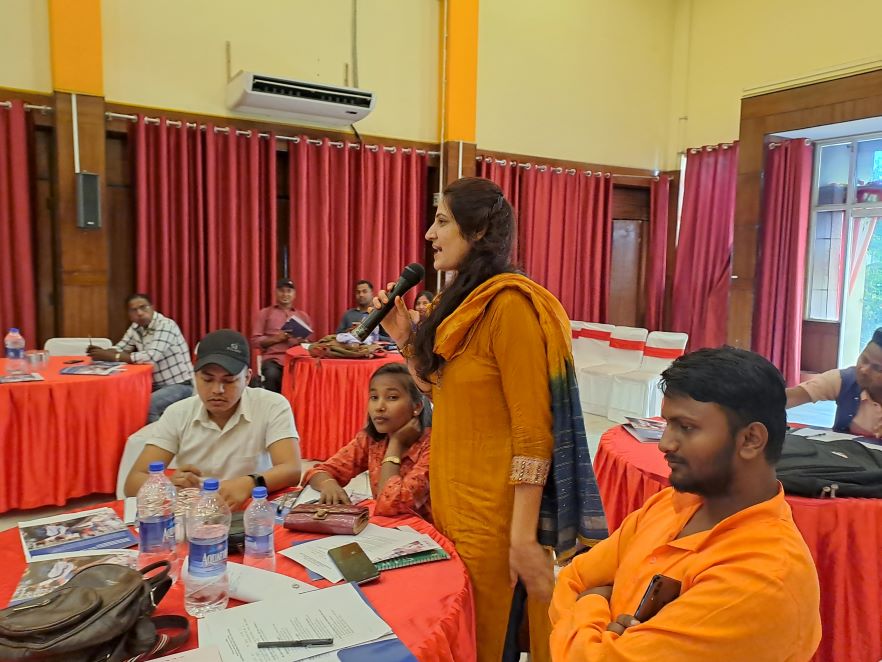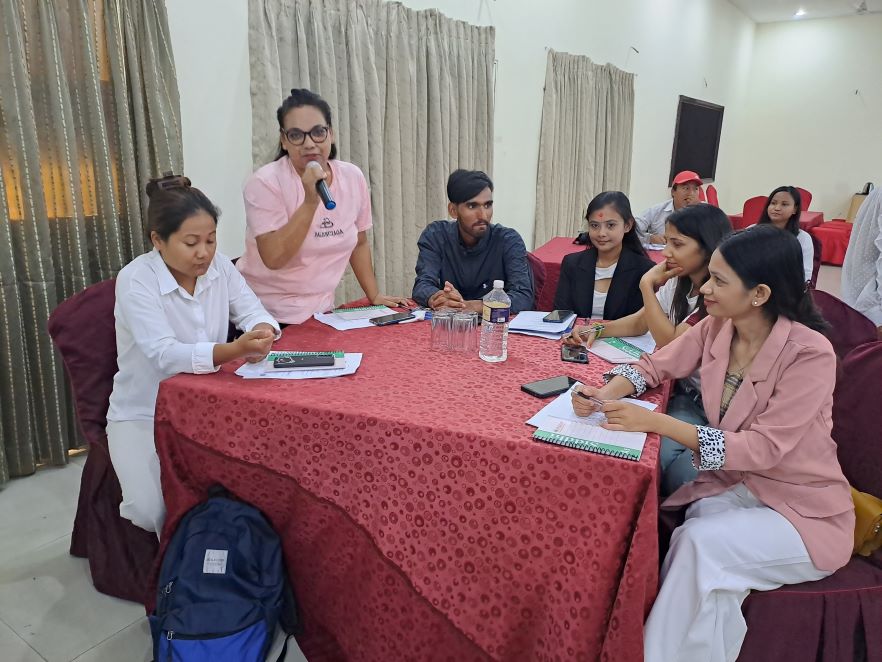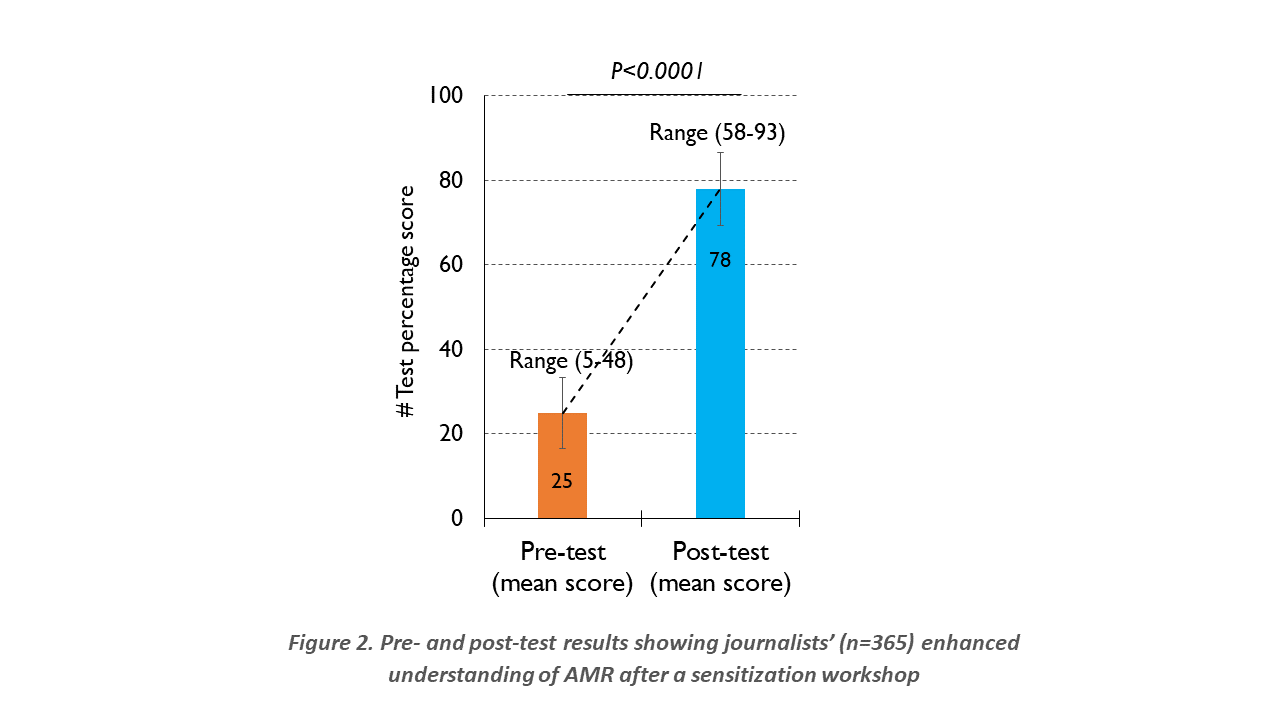Empowering Media in Nepal to Champion Public Awareness of Antimicrobial Resistance
Antimicrobial resistance (AMR) poses an urgent public health threat to the world, including Nepal, due to inappropriate use of antimicrobials, that is, medicines used to treat bacteria, viral, parasitic, and fungal infections of humans, animals, and plants. AMR makes infections harder or impossible to treat and increases the financial burden for patients and the government. To address this challenge, Nepal developed the National Action Plan on Antimicrobial Resistance 2023-2028 with five strategic pillars, including one on education and awareness.
To provide critical information about the current AMR landscape in Nepal, with support from USAID MTaPS, the Ministry of Health and Population (MOHP) convened a workshop for 48 representatives from 27 multi-sectoral partner organizations to share information on their AMR activities and strategies, assess their implementation challenges, and unite behind a shared objective of AMR containment in Nepal.
Raising public awareness and promoting prudent antimicrobial use, particularly through the media, is a vital step to curb AMR. Well-informed media reporting can shift social norms, help individuals make informed decisions about antimicrobial use, encourage health care providers to prescribe responsibly and promote farmers’ and veterinarians’ cautious application of antimicrobials, particularly those of most importance to human health. The One Health approach recognizes the interconnectedness of human, animal, and environmental health; therefore, engaging multi-sectoral stakeholders, including the media, is crucial to safeguarding public health and mitigating AMR’s impact.
Assessment of Media Knowledge of AMR
Media personnel are prospective allies and influencers in shaping public perception of AMR and behavior related to rational antimicrobial use from a One Health perspective. However, an analysis of Nepal’s AMR-related publications unveiled a lack of strong case stories, evidence-based data, and explorative journalism. To better address this gap, MTaPS assessed the baseline knowledge of AMR among 114 journalists from all seven provinces of Nepal, using 15 structured questions covering AMR awareness, practices, infection prevention and control, and antimicrobial stewardship.
Survey findings revealed the media’s significant lack of AMR knowledge, with two-thirds answering all 15 questions on AMR incorrectly (Figure 1). This underscores the great potential of systematic media sensitization and education to contribute to evidence-based reporting to educate the public about AMR and the role that the public can play in combating its spread.

Figure 1. Journalists’ (n=114) knowledge of AMR based on 15 closed-ended questions
Development of AMR Sensitization Workshop Package
MTaPS used the results of the AMR knowledge assessment to create an AMR sensitization workshop package of resources for media. The sensitization package benefited from stakeholders’ insights and technical expertise, including the recommendations and approval from the Quality Standard and Regulation Division, MOHP. In addition, MTaPS consulted with members of the Health Journalist Forum Nepal, the Department of Food Technology and Quality Control, Central Veterinary Laboratory of the Ministry of Agriculture & Livestock Development, Nepal Agriculture Research Council, National Public Health Laboratory, and Nepal Health Research Council who played a crucial role in developing the package and translating it into Nepali. The consultations highlighted the importance of exploratory and investigative journalism, along with the need for case-specific discussions and evidence-based AMR-related articles tailored to local contexts.
The package covered global and national AMR scenarios, sex impacts, investigative journalism, and AMR-related topics in food, feed, environment, and animal husbandry as part of a One Health approach. MTaPS also used real-life case studies to illustrate the significance of evidence-based reporting and encouraged media personnel to adopt similar methods in their work.
Nationwide Media Sensitization on AMR
In a powerful collaborative effort with Provincial Health Secretaries and Directorates, the MOHP Quality Standard and Regulation Division, and MTaPS held an AMR sensitization workshop for journalists in eight cities in all seven provinces—Biratnagar (Koshi), Janakpur (Madhesh), Chitwan and Kathmandu (Bagamati), Pokhara (Gandaki), Dang (Lumbini), Surkhet (Karnali), and Dhangadhi (Sudurpaschim)—in June and July and two hilly regions – Sankhuwasabha (Koshi) in October and Jumla (Karnali) in November 2023. A total of 470 media personnel (330 male, 140 female) participated. They appreciated the innovative approach that combined knowledge assessment with comprehensive training and a resource package and recognized AMR as a critical new topic for them to cover in their reporting. Moreover, during the workshop, media personnel expressed their strong commitment to advocating for public AMR awareness.

Journalist shares remarks during the AMR sensitization workshop in Janakpur, Madhesh Province, June 7, 2023. Photo credit: USAID MTaPS Nepal
“The extent of antibiotic misuse across all sectors, posing a grave risk to countless lives, left me truly astonished despite my prior awareness. This remarkable AMR workshop has ignited an unwavering commitment within me to uncover and combat these malpractices within communities in the days ahead. I extend my profound gratitude to USAID MTaPS for granting me this invaluable learning opportunity, empowering me to make a difference as a journalist.” — Mr. Basu Neupane, Journalist, ‘Hamro Doctor’ online media, https://www.hamrodoctornews.com/ Kathmandu, Bagamati Province
The workshop yielded notable results that illustrated participants’ significantly enhanced understanding of AMR—the post-test scores (from the 365 participants who took both tests) showed a significant three-fold increase from 25% to 78% in AMR knowledge (Figure 2).

Journalists interact during the AMR sensitization workshop held in Chitwan, Bagamati Province, June 9, 2023. Photo credit: USAID MTaPS Nepal
Most importantly, the intervention led to an impressive surge in media coverage in producing over 200 evidence-based news reports on AMR using platforms like newspapers, TV, radio, and social media. This effort even prompted the Lumbini Province Health Secretary to allocate a dedicated budget for AMR awareness, which demonstrates a strong understanding of the importance of addressing this issue.
“After this eye-opening training, I realized that everything we consume, from farm to table, is being affected by the misuse of antimicrobials. The very food we offer to improve our children’s diet may inadvertently be endangering their health, turning into a slow poison. To secure our children’s future, I am committed to take up this issue seriously and use my media platform to advocate for the rational use of antimicrobials and educate the public to fight against AMR.” — Ms. Shrijana Thapa, Journalist, ‘Deukhuri Today’ Local Newspaper, https://deukhuritoday.com/, Dang, Lumbini Province Journalists’ Recommendations
The participating journalists strongly advocated for fellowships, offering financial incentives to journalists for developing AMR media/news reports to sustain the promotion of evidence-based AMR media coverage. They highlighted the importance of utilizing media in awareness programs in rural areas too, where knowledge about the severity of indiscriminate antibiotic use and the impact of AMR is also lacking among the general population. Furthermore, they emphasized the necessity for ongoing capacity-building programs to enhance their ability to cover AMR topics using ethical, innovative, and comprehensive approaches. The workshop participants communicated their primary objective as increasing public understanding and driving behavioral changes related to antimicrobial use and health-seeking while also providing support for the establishment and enforcement of policies, laws, and regulations aimed at combating AMR.
By championing an informed and empowered media landscape, community journalists particularly play a pivotal role in enhancing public understanding and elevating AMR awareness. These roles can catalyze shifts in antimicrobial use behaviors while advocating for transformative policy changes to bolster the global campaign against the mounting threat of AMR.
